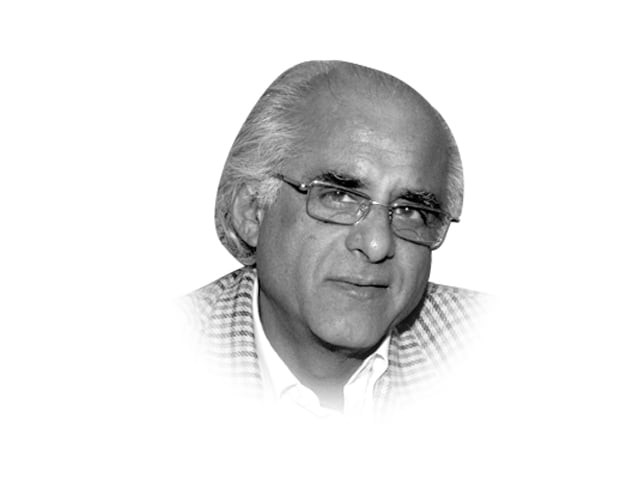Land of the impure
The Yavanas were despised people. For the Pundits of the east, these people were the Mlechha — unclean ones.

The decay of the Mauryan Empire gave rise to a new wave of Greek adventurers. In or about the year 184 BCE, Demetrius, the first of the Euthydemid line of kings, left his seat of power at Balkh from where he controlled Afghanistan, and annexed Taxila. Not two decades had passed when another line of Greek adventurers, the descendents of Alexander’s general Seleucus Nikator, displaced the Euthydemids to become masters of first Taxila and Sialkot and eventually most of what is now Pakistan.
Far away in the east, the caste-conscious rulers of Patliputra (Patna) looked upon this parade of outsiders with disdain. The Yavanas (the local pronunciation of the Persian Yunani from Ionian) were despised people. For the Pundits of the east, these people were the Mlechha — unclean ones. There was, in that early pre-Islamic age, no appreciation for the white-skinned foreigners. By extension, the land of the outsiders became Mlechha Desa — Land of the unclean.
The power of the Greeks eventually waned and a hundred years after Eucratides, the Seleucid king, had taken Taxila, Punjab and Khyber-Pakhtunkhwa fell to Scythian hordes. Under their able king, Maues, these people rose in power and even before Maues died, they had spread across what is now Pakistan.
Having been in fashion for more than a hundred years, the title of Mlechha Desa now stuck fast. This was the land customarily under control of the impure, unclean outsiders. Little did it matter to the high caste Pundits of the east that they and outsiders in reality sprang from the common Indo-Aryan stock separated only by some scores of generations. Nevertheless, there was clearly no admiration for the newcomers; there was only revulsion.
This remained the case for the next millennium. It was only subsequent to the Muslim influx into the subcontinent when a sufficiently large number of conversions led to friction between the old established belief system and the new, that the first seeds of ‘love for the tormentor’, the invading newcomer, were sown. This was largely because the invader was now always Muslim (save Chengez Khan) and looked upon by the converts of India as a saviour.
Mahmud Ghaznavi, a Turk erroneously adopted by the Pathans as one of them, who raped and looted regardless of the religion of his victim, was lionised simply for being a Muslim. Few care to know that while this common brigand descended upon India in the winters, he routinely pillaged the rich (Muslim) cities of Central Asia. Only Abu Rehan Al Beruni got the real measure of this robber chief: Never in his life did he refer to him as Imad ud Daula, Sultan Ghazi etc. For Al Beruni, he was forever plain Amir Mahmud.
The cowardly Jalaluddin Khwarazm flying in front of the superior arms and tactics of Chengez Khan was turned into a hero by that sham historian Nasim Hijazi. This spineless man abandoned his family to the Mongols, knowing full well what they did to their adversaries, and fled to watch their rape and plunder from the safe side of the Sindhu River.
Subsequently, he indulged in wholesale slaughter in Multan, Uch and Bhambore (all Muslim cities) and utterely sacked Pari Nagar, a rich and fabulous city shared by Hindus and Muslims in Tharparkar. Mindless of all this savagery, we, in our ignorance, shamelessly permitted the spurious work of Hijazi to hone our love for this tormentor.
There is clearly a lack of national pride. There can be no other reason that we worship invaders who raped, looted and sacked our cities. We worship them and name sons after them only because we share the same religion with them.
Published in The Express Tribune, June 11th, 2011.















COMMENTS
Comments are moderated and generally will be posted if they are on-topic and not abusive.
For more information, please see our Comments FAQ